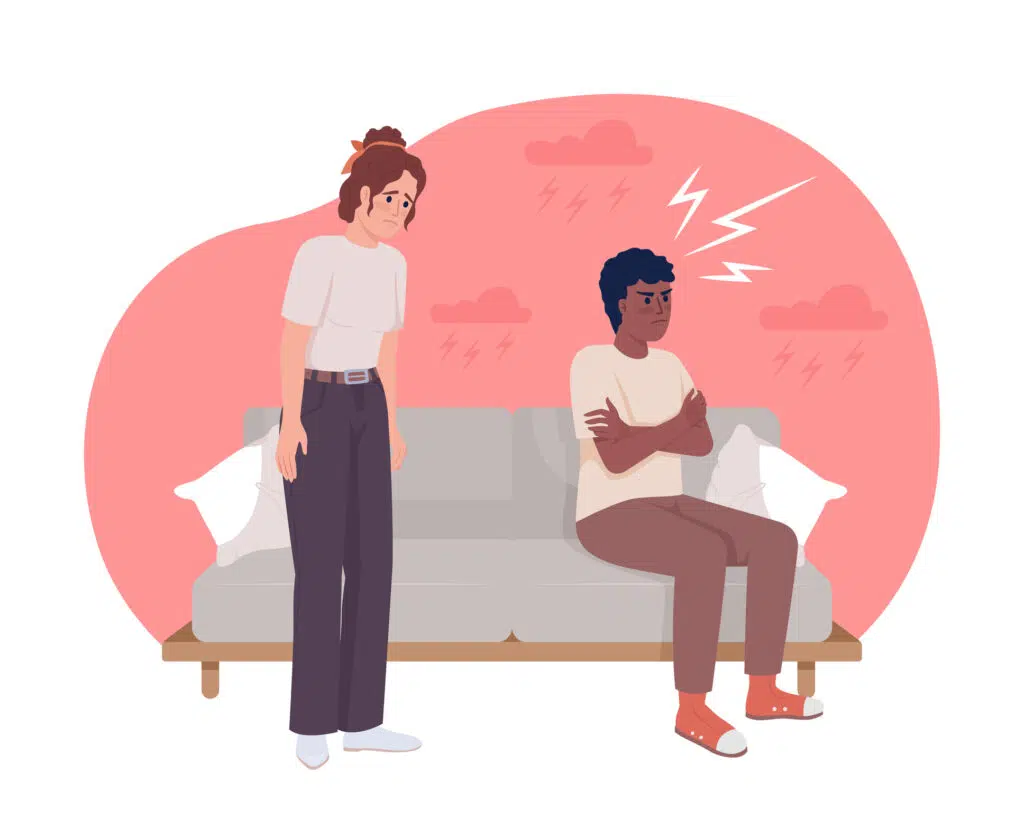10 Couples Therapy Exercises To Build Connection And Trust

Trust, love, and commitment are at the core of a healthy relationship. Once trust is broken, rebuilding and returning to normalcy can take time. Whether you’re looking to restore trust or fine-tune a relationship, try these ten therapist-approved couples therapy exercises to help couples create a stronger foundation of trust and connection.
Some consider couples counseling a last resort before a breakup or divorce, but even happy couples can learn much through therapy. You may want to improve communication with your partner or talk about a sensitive subject; couples activties can be beneficial. Whether you’re in therapy or not, there are plenty of couples therapy exercises you can practice at home to help strengthen your relationship, improve communication, and to help you co-exist with each other in a fun way. Building trust through honest, meaningful communication and vulnerability can help your relationship move in a healthy direction.
10 Couples Therapy Exercises To Improve Communication And Strengthen Your Relationship At Home
- Don’t Go to Bed Angry
Conflicts are a part of every relationship, and when they occur, it’s crucial to find a way to resolve them without resentment. One of the best and most effective couples therapy exercises is ensuring that you and your partner never go to bed angry with each other. Letting issues fester for too long will only make you both angrier and potentially destructive down the line. If you cannot resolve issues before the end of the day, the best practice is to note them down and try and talk about them the next day when you both feel calmer and more in control.
- Create A List of Fun Activities to Do Together
If you are trying to build connection and trust with your partner, a good place to start is setting aside fun activities to bring you closer. These activities fall outside your other family commitments as a time for you two to unwind and reconnect. Fun activities you could do together include:
- Setting up a date night
- Going on a bike ride or kayaking
- Catching up on a TV show
- Heading to a festival together
- Identify Unmet Needs in The Relationship
Relationships change constantly, but what remains are our needs and wants. For a relationship to work, both partners need to work on giving and receiving from each other. That means knowing when to differentiate needs vs. wants in relationships. A need is something you can’t live without, while a want is something you desire but can compromise on. If you’re coming from a place where you need to build connection and trust, focus on unmet needs in the relationship. Most of the time, unmet needs are caused by a lack of self-love and over-compromising on things you can’t do without in the relationship.
- Set A Regular Date Night
It can be useful to go back to the drawing board to remind yourself of that initial spark. Kids, work, and other commitments start to pile up, and it’s easy to put your relationship to the side when you are time-poor. But having a regular date night, no matter how small can give you time to focus on each other. Start by setting aside a date night that works for both of you and commit to it every week. Take turns planning dates. Making time for each other shows you’re actively investing in your relationship and prioritizing quality time together.
- Unplug and Talk
Like date nights, set aside at least an hour weekly to unplug and talk. Spend that time talking about everything you love about each other and things that bother you. It should be a judgment-free zone where you agree not to take offense or hold a grudge over anything said during that time. Just take that time to listen to each other. It can sound overly simple, but feeling heard and validated can be a relief.
- Write Down Everything You Love About Your Partner
Writing down everything you love about your partner helps remind you of why you fell in love with them in the first place. Most of the time, conflicts can arise when one partner feels unappreciated. This couples therapy exercise is a great way to help ease their fears and make them feel loved and not taken for granted.
- Have A “Relationship Check-In” Once A Week
For a relationship to succeed, both partners should feel connected and fulfilled. A relationship check-in is ideal for strengthening connection as it makes it easier to bring up issues that have yet to be addressed. Aim to check in once a week and see what works for you as a couple. The good thing about relationship check-ins is that you build a strong habit, making it difficult to forget. Over time, you’ll find you might not even need to schedule regular check-ins because you will be more in tune with addressing conflicts as soon as they arise.
- Set Goals Together
Having common goals you’re working towards is a great exercise to strengthen your relationship and talk about the future. Setting goals together leaves room to experiment and see what’s working and what goals to adjust so both of you are happy with the outcome. You can start by making a vision board on the future you want together. It’s one of the best times to discuss where the relationship is headed so that you are both on the same page.
- Identify Sources of Stress in Your Relationship
Stress management is important for you as a couple and an individual. In a relationship, stress often leads to conflicts because one partner is usually irritable, unfulfilled, or emotional. Try to identify the stressors in your relationship and figure out together how to manage them. By tackling stressful situations as a team and using positive interactions, couples can foster a sense of “we-ness.”
- Practice a Trust Fall
Trust falls are designed to build trust. A trust fall is meant to help you trust the person you’re in a relationship with, no matter the circumstance. One partner stands in front of the other, facing forward. They then try and fall back towards and must trust that their partner will catch them. When you learn to trust someone with something as basic as catching you when you fall, you open yourself up to trusting them in all other areas of your life.
How Thriving Center of Psychology Can Help
Sharing a trustful connection and bond is one of the most important aspects of a romantic relationship. Stress, conflict, and arguments are completely normal within a relationship. But how you handle situations and overcome hurdles as a couple can significantly influence the relationship.
Couples therapy exercises can help build trust and commitment and strengthen your relationship. Learn how to communicate your needs, set time for each other, resolve conflicts as soon as they occur, and set and work on goals together.
If you believe your relationship could benefit from couples therapy or would like to speak to an unbiased third party, book an appointment online. Our team of caring couples therapists can help address the issues in your relationship and help you learn how to communicate more effectively.

How to Move On After a Friendship Breakup
Friendship breakups can sting just as much as a romantic breakup. After all, you’re experiencing a loss of shared history and an understanding of each other that can leave you feeling lonely and isolated. Not all friendships are forever, but moving on from the loss of a friendship does take time and some self-compassion.

Signs You’re in a Toxic Relationship
A toxic relationship can chip away at your well-being and happiness. Toxic partners can be manipulative and charming, making it difficult to recognize the signs that you’re in a toxic relationship. You deserve to be in a supportive and healthy relationship.

10 Common Marriage Reconciliation Mistakes to Avoid After Infidelity
Infidelity can leave couples devastated. If you’ve been affected by infidelity and want to salvage your relationship, rebuild trust, or make a tough decision, keep reading for 10 common reconciliation mistakes to avoid after infidelity.

Survey: 72% of Americans are Stressing About the Upcoming Presidential Election
Political viewpoints in the U.S. have always been contentious, but is the impact of politics in the United States making it difficult for people to live their everyday lives? With some anticipating another brutal and long campaign season ahead of the upcoming 2024 presidential election, nearly half of Americans say politics is negatively impacting their mental health.




